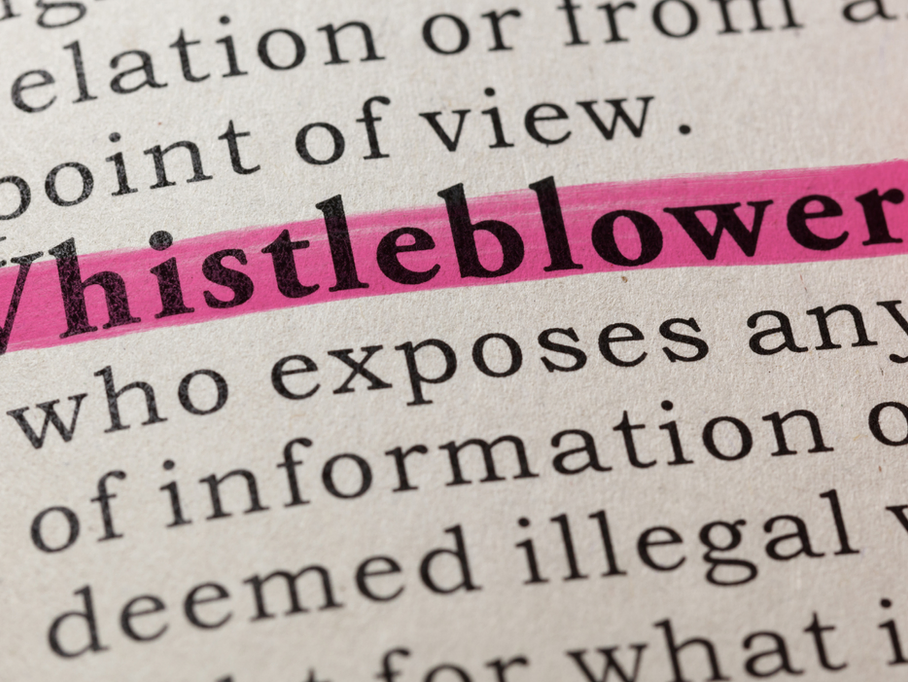An opinion editorial by TRUTH DEFENCE
Emily Oldknow, a former executive director in the Labour Party under General Secretary Ian McNicol, has brought a legal application asking the Labour Party to disclose the identity of the people who put the ‘leaked’ Labour report into the public domain. Oldknow is seeking this information in order to decide whether to bring an action against those individuals.
The ‘leaked’ report, as has been extensively reported elsewhere, contained evidence suggesting that Labour staffers had worked to undermine Labour’s election campaign under Jeremy Corbyn in 2017. It appeared to show that staffers had instituted a scheme (referred to as Ergon House) to allocate funding to targeted seats and candidates without the knowledge of the leadership. Finally, the leaked report described and reproduced WhatsApp conversations between senior Labour staffers that revealed, not just animosity to Corbyn and the left of the Labour Party, but discussions about their colleagues expressed in abusive and demeaning terms.
In responding to Oldknow’s request, the Labour Party has, despite some not very subtle footwork, effectively thrown the whistleblowers who leaked the document under the bus. The Party has said that they have no objection to disclosing the results of an internal investigation into the leaking of the report, whilst claiming they have no definitive evidence of who the leakers are. Most egregiously, the Party has agreed with Ms Oldknow that the leaking of the report was ‘unquestionably wrongful’.
These submissions are an outrage, undermine protection for whistleblowers, and open the Labour Party to serious legal consequences.
The law here is relatively straightforward. There are specific protections and exemptions for whistleblowers in both the 1998 Public Interest Disclosure Act and the 2018 Data Protection Act. But the Data Protection Order 2000 is perhaps the most clear-cut example of how the law sides with the whistleblowers in this case. This order specifically concerns the unauthorised leaking of personal information and provides explicit protection to those doing so in the public interest. The leaking of the report was clearly not, as the Labour Party has tried to argue, ‘unquestionably wrongful.’ Indeed, it was the exact opposite.
For a start, on the basis of the facts published, the whistleblowers in this case would have had every reason to suspect that the so-called Ergon House scheme involved the secret diversion of funds against the wishes of the leadership, and thus constituted potential fraud and theft.
But beyond that, there is no question that the evidence of factionally-motivated staff apparently failing to act on antisemitism complaints in spite of appeals by the leadership was a public interest issue. Evidence pertaining to the mishandling of complaints about racism in a major political party could be reasonably considered a public interest issue in any circumstances or context, but especially so given the wider controversy surrounding antisemitism in the Labour Party.
We also know, based on the recent report by the Equalities and Human Rights Commission, that the Labour Party was issued with a notice to provide information relevant to the EHRC’s terms of reference. Staffers in the Labour Party, because of this specific order, were legally required to search through the Party’s email servers to find and disclose relevant information. In doing so, they discovered, amongst other things, the WhatsApp messages (that had been sent by a staffer to their Labour Party email address), evidence of the Ergon House scheme, and vast quantities of evidence showing that the Party’s dealing with antisemitism complaints had been hamstrung by factional animus.
The staffers then drafted the report, but the Labour Party decided not to submit it to the EHRC. Clearly at this point the whistleblowers, whoever they are, had informed their employers (the Labour Party) that a huge amount of evidence relevant to the EHRC investigation exists. They had also informed their employers about the Ergon House scheme. Instead of submitting that evidence to the EHRC and acting on it, the employers decided to quash it. Moreover, they have decided to quash the evidence despite the fact that they were legally obligated to disclose all evidence relevant to the EHRC investigation, regardless of whether it reflected badly on the Party or not.
So over and above the evidence of wrongdoing contained within the disclosure itself, putting the document in the public domain was vitally in the public interest: it revealed that the Party failed to meet its legal obligations to the EHRC.
As to the reasonable expectations of privacy on the part of those implicated in the leaked evidence, this is frankly absurd. The leaked WhatsApp conversations were established to discuss Labour Party business. They exclusively involved senior officials with significant managerial and leadership responsibility within the party.
The Labour Party’s statement in this litigation is not only incorrect and craven, but it could also render the Party liable to yet another legal action brought on the part of the whistleblowers. The Public Interest Disclosure Act establishes that following a protected disclosure, the worker “has the right not to be subjected to any detriment by any act, or any deliberate failure to act, by his employer on the grounds that the worker has made a protected disclosure.”
It is very likely that the Labour Party’s decision to investigate who leaked the report is, in and of itself, a violation of PIDA, subjecting the whistleblower to detriment, including emotional distress. This harm is only magnified and amplified by the Party’s decision not to oppose Oldknow’s application; it is clearly a ‘deliberate failure to act’ in that it is a failure to recognise and uphold the rights of the whistleblowers.
The Labour Party is supposed to be the party of workers and worker’s rights. This must include the essential rights of workers to blow the whistle on crimes or misconduct. By failing to oppose Oldknow’s application, and in agreeing that an obvious public interest disclosure was ‘unquestionably wrongful’, the Labour Party has hammered yet another nail into the coffin of worker’s rights, whilst gravely undermining the plight of genuine whistleblowers.


Mark
September 13, 2022 at 4:54 pm
Thanks for your blog, nice to read. Do not stop.